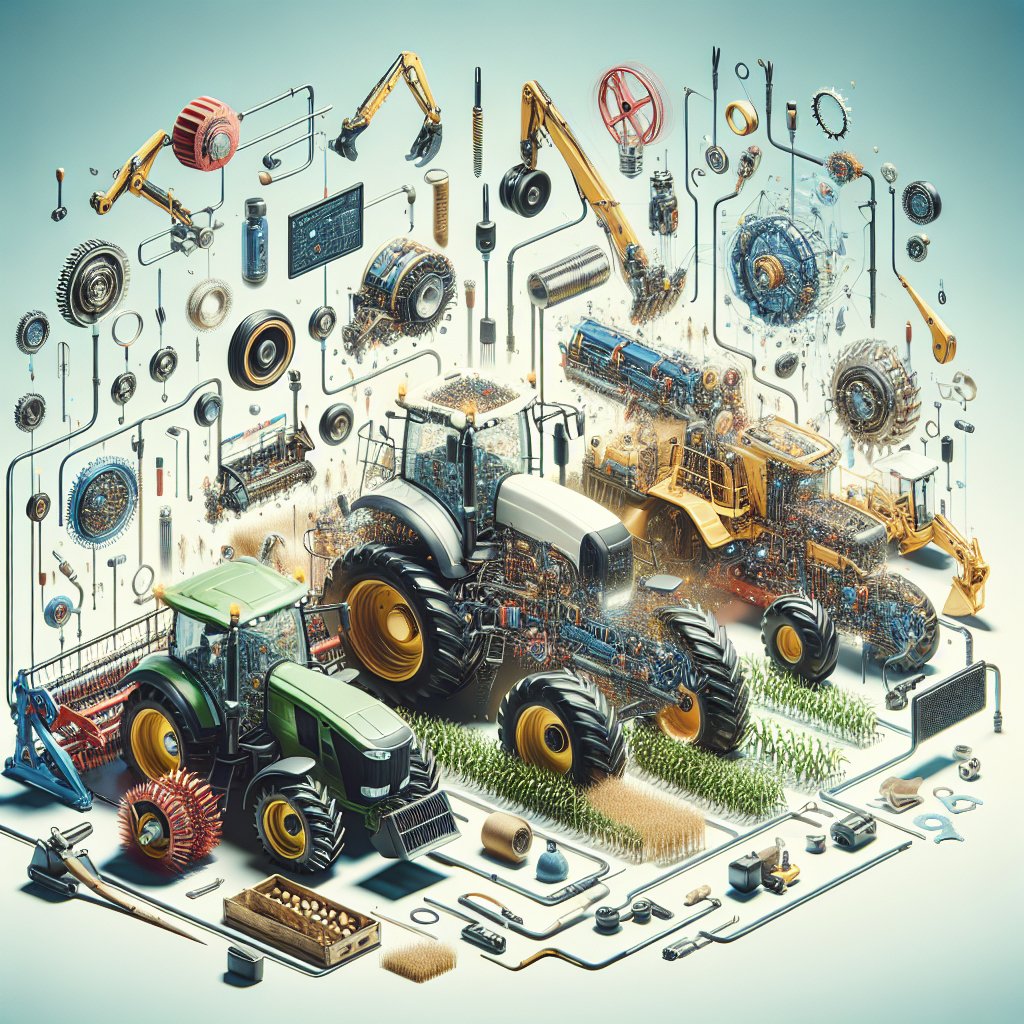
Maintaining the health of farm machinery is crucial for ensuring efficient agricultural operations and prolonging the lifespan of the equipment. Proper maintenance not only reduces the risk of unexpected breakdowns but also enhances the performance and safety of the machinery. In this article, we will explore various tips and strategies to keep your farm machinery in optimal condition.
Regular Inspection and Maintenance
One of the most effective ways to maintain farm machinery is through regular inspection and maintenance. This involves a systematic approach to checking the condition of the equipment and performing necessary repairs or replacements. Regular maintenance helps in identifying potential issues before they escalate into major problems, thus saving time and money in the long run.
Establish a Maintenance Schedule
Creating a maintenance schedule is essential for keeping track of when each piece of machinery needs attention. This schedule should include daily, weekly, monthly, and annual tasks. Daily checks might involve inspecting fluid levels, tire pressure, and ensuring that all moving parts are properly lubricated. Weekly and monthly tasks could include more in-depth inspections, such as checking belts, hoses, and electrical systems. Annual maintenance might involve a comprehensive overhaul of the machinery, including engine tune-ups and replacement of worn-out parts.
Keep Detailed Records
Maintaining detailed records of all maintenance activities is crucial for effective machinery management. These records should include information about the type of maintenance performed, parts replaced, and any issues encountered. Keeping such records helps in tracking the performance of the machinery over time and can be invaluable when diagnosing recurring problems. Additionally, well-documented maintenance records can increase the resale value of the equipment.
Proper Storage and Handling
Proper storage and handling of farm machinery are vital for preventing damage and ensuring longevity. Exposure to harsh weather conditions, such as rain, snow, and extreme temperatures, can lead to rust, corrosion, and other forms of deterioration. Implementing appropriate storage solutions and handling practices can significantly reduce these risks.
Store Machinery Indoors
Whenever possible, store farm machinery indoors to protect it from the elements. A well-ventilated, dry, and secure storage facility can prevent moisture buildup, which is a common cause of rust and corrosion. If indoor storage is not feasible, consider using tarps or covers specifically designed for outdoor equipment protection. Ensure that these covers are securely fastened and allow for adequate ventilation to prevent condensation.
Implement Safe Handling Practices
Safe handling practices are essential for preventing accidents and damage to the machinery. Train all operators on the proper use of each piece of equipment, emphasizing the importance of following manufacturer guidelines. Encourage operators to perform pre-operation checks, such as inspecting for loose bolts or leaks, and to report any issues immediately. Additionally, ensure that all machinery is turned off and properly secured when not in use.
Utilizing Technology for Maintenance
Advancements in technology have provided farmers with new tools and resources for maintaining their machinery. From diagnostic software to mobile apps, these technologies can streamline maintenance processes and improve the overall efficiency of farm operations.
Diagnostic Tools and Software
Modern farm machinery often comes equipped with diagnostic tools and software that can monitor the equipment’s performance in real-time. These systems can alert operators to potential issues, such as engine malfunctions or hydraulic failures, before they lead to significant downtime. By utilizing these tools, farmers can proactively address maintenance needs and reduce the likelihood of unexpected breakdowns.
Mobile Apps for Maintenance Management
There are numerous mobile apps available that can assist farmers in managing their machinery maintenance schedules. These apps can send reminders for upcoming maintenance tasks, track maintenance history, and even provide troubleshooting guides for common issues. By leveraging these digital resources, farmers can ensure that their machinery remains in top condition with minimal effort.
Conclusion
Maintaining the health of farm machinery is a multifaceted process that requires regular inspection, proper storage, safe handling, and the use of modern technology. By implementing these strategies, farmers can enhance the performance and longevity of their equipment, ultimately leading to more efficient and profitable agricultural operations. Investing time and resources into machinery maintenance is a proactive approach that pays off in the long run, ensuring that farm operations run smoothly and without unnecessary interruptions.

